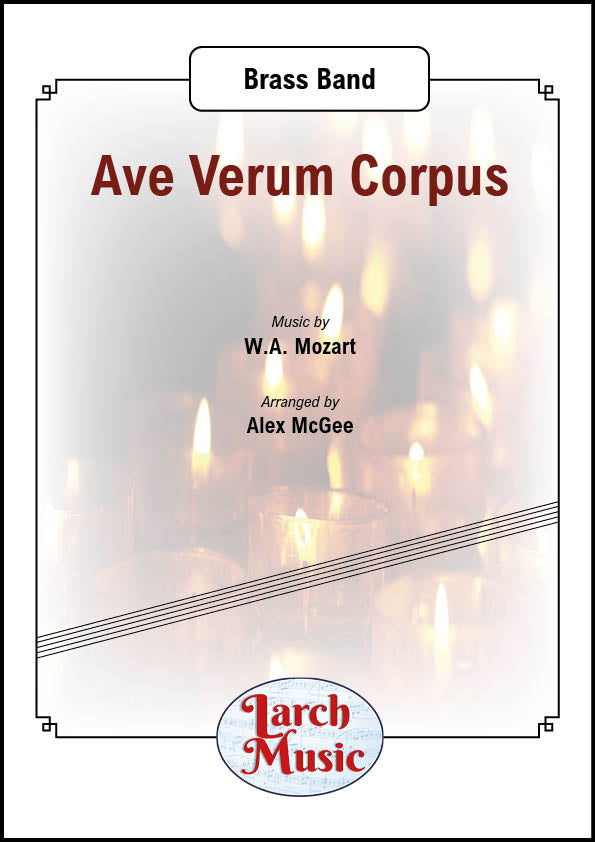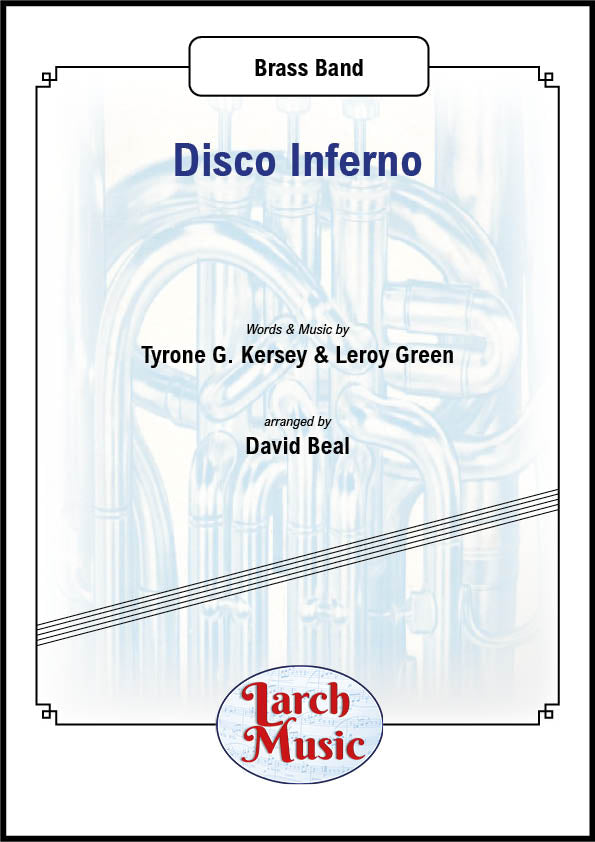Results
-
£61.00
I Like It (Bra) - Lionel Richie/Enrique Iglesias/Nadir Khayat/Armando Perez - Mike Kilmartin
"I Like It" is a song performed by Spanish singer Enrique Iglesias taken from his first bilingual studio album, Euphoria. It features guest vocals from American rapper Pitbull. Both artists co-wrote the song with RedOne, who produced it. It also interpolates Lionel Richie's 1983 single "All Night Long (All Night)" with vocals re-recorded by Richie himself. The song was also included on the official soundtrack to MTV reality series Jersey Shore. A version of the song without Pitbull is also found on the international version of Euphoria.
Estimated dispatch 7-14 working days
-
£70.00
Mercy, Mercy, Mercy (Bra) - Joe Zawinul - Dave Collins
"Mercy, Mercy, Mercy" is a very cool and laid back piece written by Joe Zawinul in 1966 for Julian "Cannonball" Adderley. Zawinul played an important role in the development of the jazz rock, along with Chick Corea, Herbie Hancock, John McLaughlin and Miles Davis. Zawinul was best known as the founder of the American jazz fusion band "Weather Report". He was one of the first musicians who used electric pianos and early synthesizers in jazz.
Estimated dispatch 7-14 working days
-
£84.00
Salute (Bra) - Stijn Aertgeerts
'Salute' is written for conductor Nico Meylemans and the Royal Fanfare Band 'Moed & Volharding' from Heist -op-den -Berg (B). The work commemorates all war victims from Heist-op-den-Berg who died during World War I. The salute is a sign of respect for the fallen, the famous 'Last Post' theme is also incorporated into the piece.
Estimated dispatch 7-14 working days
-
£67.00
Elegy to Unknown Musicians (Bra) - Pierre-Antoine Savoyat
'Elegy to Unknown Musicians' (or in French 'Elegie aux Musiciens Inconnus') is a hymn the composer wrote after the death of Maurice Crozier, who was his fellow musicians in the first band he played 'L'Echo de la Vallee du Morgon' near Lyon (France). It's dedicated to him and all amateur musicians.
Estimated dispatch 7-14 working days
-
£85.00
Fanfare for the Union (Bra) - Pierre-Antoine Savoyat
This young French composer (1993) wrote this sparkling brass band overture commissioned by Brass Band Buizingen & Luc Vertommen in 2017.The name of the piece is a reference of the origins of the band "Union-Buizingen". This piece gives some nice solos who contrast with bright tutti (in pure style of Brass Band overture).
Estimated dispatch 7-14 working days
-
£76.00
Toccatina (Bra) - Olivier Marquis
In May 2017, during the European Brass Band Championships, the composer meets Michel Leveugle who asks him to write the testpiece for the B Division of the Flemish Open Brass Band Championship 2018. On the way back to Switzerland, Olivier Marquis invents an ostinato which later forms the backbone from Toccatina. After a first, restless, presentation of the theme by the trombones, the ostinato shifts to the basses, euphoniums and horns after which the theme is renewed at the cornets. A quiet mysterious passage brings the flugel and euphonium to the fore, after which the ostinato takes back his place. The theme comes back, to evolve to major and then close the work festively.
Estimated dispatch 7-14 working days
-
£63.00
Thunderbirds (Bra) - Barry Gray - Mike Kilmartin
Opening theme of the popular television series created in the '60. It was produced using a form of electronic marionette puppetry combined with scale model special effects sequences. Who doesn't remember main character Jeff Tracy?! 5, 4, 3, 2, 1: Thunderbirds Are Go!
Estimated dispatch 7-14 working days
-
£71.00
Cortege (Bra) - Cecil Coles - Bert Van Thienen
Cecil Coles was a Scottish composer who was killed by a German sniper in world war one, and is buried in Crouy (Northern-France). During WWI he sent manuscripts to his friend Gustav Holst, en his music was rediscovered in 2001 when it was used in the documentary serie 'The First World War'.
Estimated dispatch 7-14 working days
-
 £30.00
£30.00Ave Verum Corpus (WA Mozart arr. by Alex McGee) - Brass Band Sheet Music Full Score & Parts - LM579 - W. A. Mozart - Alex McGee
COMPOSER: W. A. MozartARRANGER: Alex McGeeThe wonderful Ave Verum Corpus arranged for brass band by Alex McGeeAve verum corpus("Hail, True Body"), (K.618), is amotetinD majorcomposed byWolfgang Amadeus Mozartin 1791. It is a setting of theLatinhymnof the same name. Mozart wrote it for Anton Stoll, a friend who was the church musician ofSt. StephaninBaden bei Wien. The motet was composed for the feast ofCorpus Christi; theautographis dated 17 June 1791. It is scored forSATBchoir,string instrumentsandorgan.LM579 - ISMN : 9790570005796
In Stock: Estimated dispatch 3-5 working days
-
 £25.00
£25.00Disco Inferno - Brass Band Sheet Music Full Score & Parts - LMAM026 - David Beal
Any purchases from this site cannot be made please click on the link (PURCHASE PDF - Sheet Music Direct or Sheet Music Plus). Do not click on "Add to cart" or buy with Shop button.Any purchases from this site cannot be made please click on the link (PURCHASE PDF - Sheet Music Direct or Sheet Music Plus) above. Do not click on "Add to cart" or buy with Shop button.COMPOSER: Leroy Green, Tyrone G. KerseyARRANGER: David BealDescriptionDisco Inferno (The Trammps)Arranged for Brass Band"Disco Inferno" is a song by American disco band the Trammps from their 1976 studio album of same name. With two other cuts by the group, it reached No. 1 on the US Billboard Dance Club Songs chart in early 1977, but had limited mainstream success until 1978, after being included on the soundtrack to the 1977 film Saturday Night Fever, when a re-release hit number eleven on the Billboard Hot 100 chart.It was also notably covered in 1993 by American-born singer Tina Turner on What's Love Got to Do with It, and in 1998 by American singer-songwriter Cyndi Lauper on the A Night at the Roxbury soundtrack. Among others who covered this are Damien Lovelock, Hardsonic Bottoms 3, and Vicki Shepard.Any purchases of this Item cannot be made from this listing please click on the link above - Any purchase using this site will be refundedAbout Digital DownloadsDigital Downloads are downloadable sheet music files that can be viewed directly on your computer, tablet or mobile device. Once you download your digital sheet music, you can view and print it at home, school, or anywhere you want to make music, and you don't have to be connected to the internet. Just purchase, download and play!PLEASE NOTE: Your Digital Download will have a watermark at the bottom of each page that will include your name, purchase date and number of copies purchased. You are only authorized to print the number of copies that you have purchased. You may not digitally distribute or print more copies than purchased for use (i.e., you may not print or digitally distribute individual copies to friends or students).
In Stock: Estimated dispatch 3-5 working days


